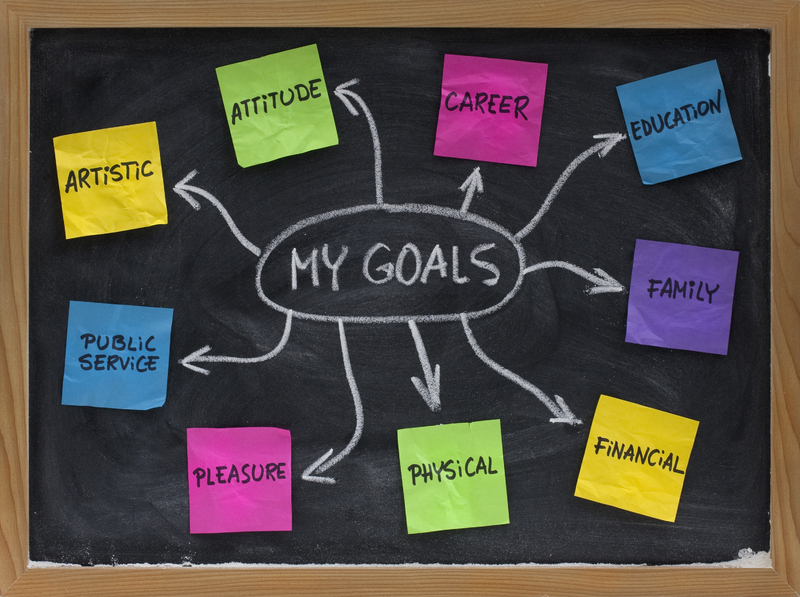Setting work goals is an important process that can help you achieve success in your career. By identifying specific, measurable goals and breaking them down into actionable steps, you can clarify what you want to accomplish and stay focused on what’s most important. Regularly reviewing your progress toward your goals and adjusting your plans as necessary can help you stay on track and achieve success. In this way, setting and achieving work goals and work goals examples can help you take control of your career and reach your full potential.
How do I write my goals at work?
To write your goals at work, follow these steps:
- Identify what you want to achieve:
Start by identifying what you want to achieve in your job or career. This could be a specific project, a promotion, a new skill, or a performance goal.
- Make your goals specific and measurable:
Your goals should be specific and measurable so that you can track your progress and know when you have achieved them. For example, instead of setting a goal to “improve your performance,” set a goal to “increase your sales by 10% in the next quarter.”
- Set realistic deadlines:
Set a deadline for achieving each goal that is realistic and achievable. This will help you stay focused and motivated.
- Break your goals down into smaller steps:
Break your goals down into smaller, more manageable steps that you can take to achieve them. This will make the goals less overwhelming and help you stay on track.
- Write down your goals:
Write down your goals and keep them in a place where you can easily see them, such as in a notebook or on your computer desktop.
- Review and revise your goals:
Regularly review your goals and revise them as necessary based on changes in your job or career path.
- Get feedback:
Share your goals with your manager or a mentor and get their feedback and support. This can help you stay accountable and get advice on how to achieve your goals.
What are common work goals examples?
Common work goals examples can vary depending on the industry, role, and individual career aspirations. However, here are some common work goals examples that could apply to many professionals:
- Increase productivity:
Set a goal to increase your efficiency and output by a certain percentage or number of tasks completed in a specific time frame.
- Improve quality:
Set a goal to improve the quality of your work output, such as reducing the number of errors or improving customer satisfaction ratings.
- Learn new skills:
Set a goal to develop new skills or improve existing ones, such as learning a new software program or completing a professional certification.
- Get promoted:
Set a goal to advance your career by getting promoted to a higher position or taking on additional responsibilities.
- Increase sales:
Set a goal to increase sales revenue by a certain percentage or amount within a specific time frame.
- Enhance teamwork:
Set a goal to improve communication, collaboration, and teamwork within your team or department.
- Reduce costs:
Set a goal to reduce costs by implementing cost-saving measures, such as optimizing processes or negotiating better vendor contracts.
What are the 3 types of work goals?
The three types of work goals are:
- Performance Goals:
Performance goals are focused on the individual’s current job responsibilities and are designed to improve their performance in their role. These goals may include improving productivity by a certain percentage, reducing errors or defects, increasing customer satisfaction ratings, or meeting specific project deadlines. Performance goals are typically short-term goals that are specific, measurable, and achievable within a defined time frame. By achieving performance goals, individuals can improve their performance, contribute more value to their organization, and enhance their job satisfaction.
- Professional Development Goals:
Professional development goals are focused on the individual’s growth and development within their profession. These goals may include acquiring new skills, completing a certification or training program, attending conferences or workshops to improve their knowledge and abilities, or taking on new job responsibilities to expand their experience. Professional development goals are typically medium to long-term goals that require planning and investment of time and resources. By achieving professional development goals, individuals can increase their marketability, expand their career opportunities, and enhance their earning potential.
- Career Goals:
Career goals are focused on the individual’s long-term career aspirations and are designed to help them advance in their profession. These goals may include getting promoted to a higher position, changing careers to pursue a new field, or starting their own business. Career goals often require strategic planning, networking, and taking calculated risks to achieve them. By achieving career goals, individuals can advance their careers, increase their earning potential, and achieve greater job satisfaction.
Steps to seeting achieving goals
Setting and achieving goals and work goals examples is an important process that can help you achieve success in any area of your life, whether it’s your personal or professional life. Here are some steps to follow to set and achieve your goals:
- Identify your goal:
The first step is to identify what you want to achieve. Be specific and clear about what you want to accomplish.
- Write down your goal:
Writing down your goal can make it more real and increase your commitment to achieving it.
- Set a deadline:
Setting a deadline for your goal can give you a sense of urgency and help you stay on track.
- Break it down into smaller steps:
Break your goal down into smaller, more manageable steps that you can take to move closer to your goal.
- Create an action plan:
Create an action plan that outlines the specific actions you need to take to achieve your goal.
- Stay motivated:
Stay motivated by reminding yourself why your goal is important to you, visualizing yourself achieving it and celebrating your progress along the way.
- Review and adjust:
Regularly review your progress towards your goal and adjust your action plan as necessary.
- Stay accountable:
Stay accountable by sharing your goal with others and seeking support and feedback from a mentor, coach, or accountability partner.
what are the 5 smart goals for work?
The five SMART goals for work are:
- Specific:
Your goal should be specific and clear. Instead of setting a goal to “improve performance,” set a goal to “increase sales by 10% in the next quarter.”
- Measurable:
Your goal should be measurable so that you can track your progress and know when you have achieved it. For example, set a goal to “increase customer satisfaction ratings by 20% within the next six months.”
- Achievable:
Your goal should be achievable given the resources and time available to you. Set a goal that challenges you, but is still attainable.
- Relevant:
Your goal should be relevant to your job or career path. Ensure that your goal aligns with your job responsibilities, company objectives, or personal development plans.
- Time-bound:
Set a deadline for achieving your goal. This will help you stay focused and motivated. For example, “increase website traffic by 25% within the next three months.”
Faqs
Q: Why is it important to create work goals?
A: Creating work goals helps you clarify what you want to achieve in your job or career and provides a roadmap to help you stay focused and motivated. By setting and achieving work goals, you can increase your chances of success, improve your performance, and advance your career.
Q: What are the steps to create work goals?
A: The steps to create work goals include identifying what you want to achieve, making your goals specific and measurable, setting realistic deadlines, breaking your goals down into smaller steps, writing down your goals, reviewing and revising your goals, and getting feedback.
Q: What are some examples of SMART goals for work?
A: Examples of SMART goals for work include increasing productivity by a certain percentage, improving customer satisfaction ratings, learning a new skill, getting promoted, increasing sales revenue, enhancing teamwork, and reducing costs.
Q: How can I ensure that my work goals are achievable?
A: To ensure that your work goals are achievable, you should consider the resources and time available to you and set goals that challenge you but are still attainable. You can also break your goals down into smaller, more manageable steps and seek feedback from others to ensure that your goals are realistic.
Q: How often should I review and revise my work goals?
A: You should review and revise your work goals regularly to ensure that they remain relevant and achievable. Depending on the nature of your goals, you may want to review them weekly, monthly, or quarterly, and revise them as necessary based on changes in your job or career path.
Final thoughts
In summary, creating work goals is an important process that can help you achieve success in your job or career. By setting specific, measurable, achievable, relevant, and time-bound goals, you can clarify what you want to accomplish and stay focused on what’s most important. Regularly reviewing and revising your goals and seeking feedback from others can help you stay on track and adjust your plans as necessary. By setting and achieving work goals, you can increase your chances of success, improve your performance, and advance your career.



